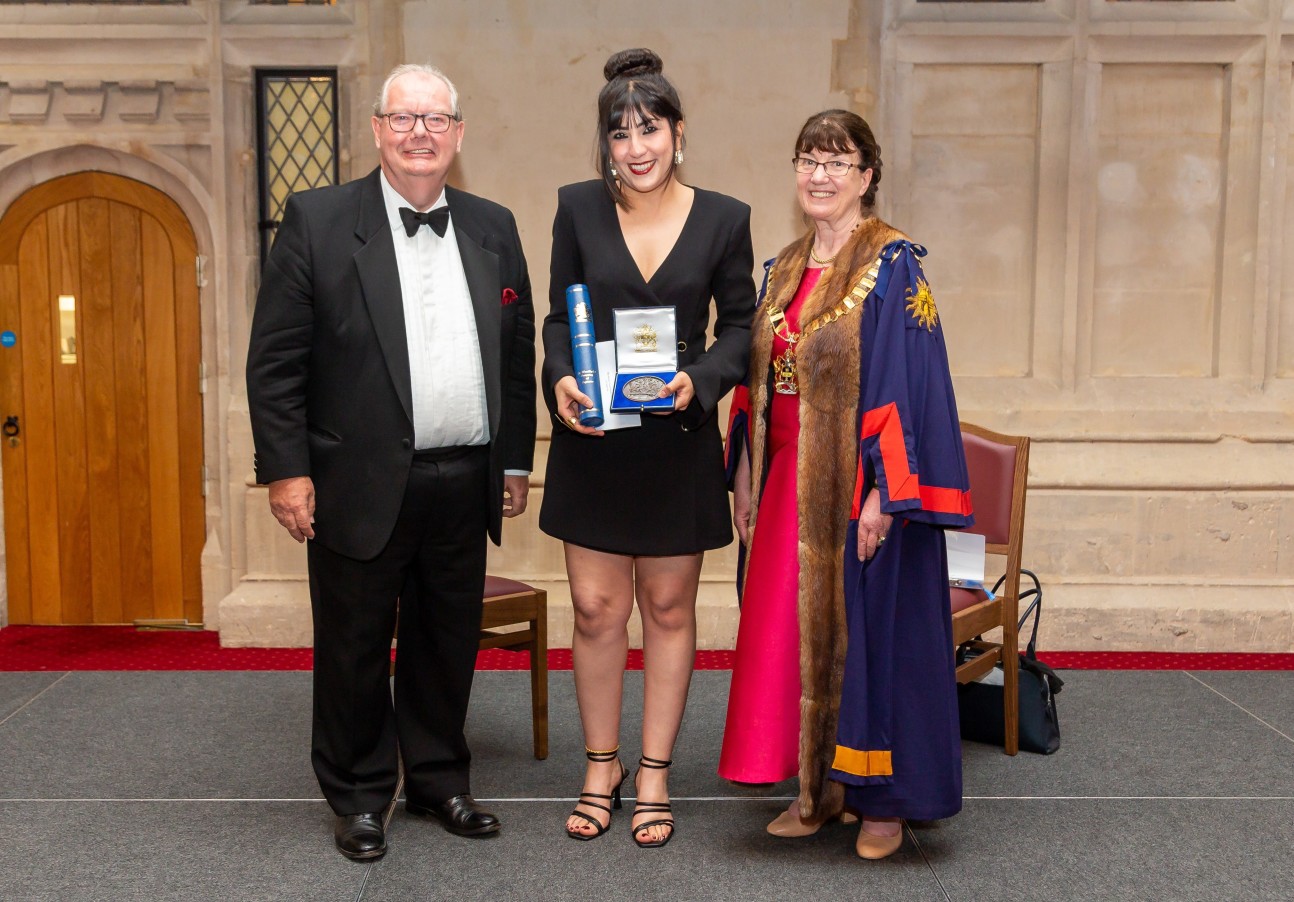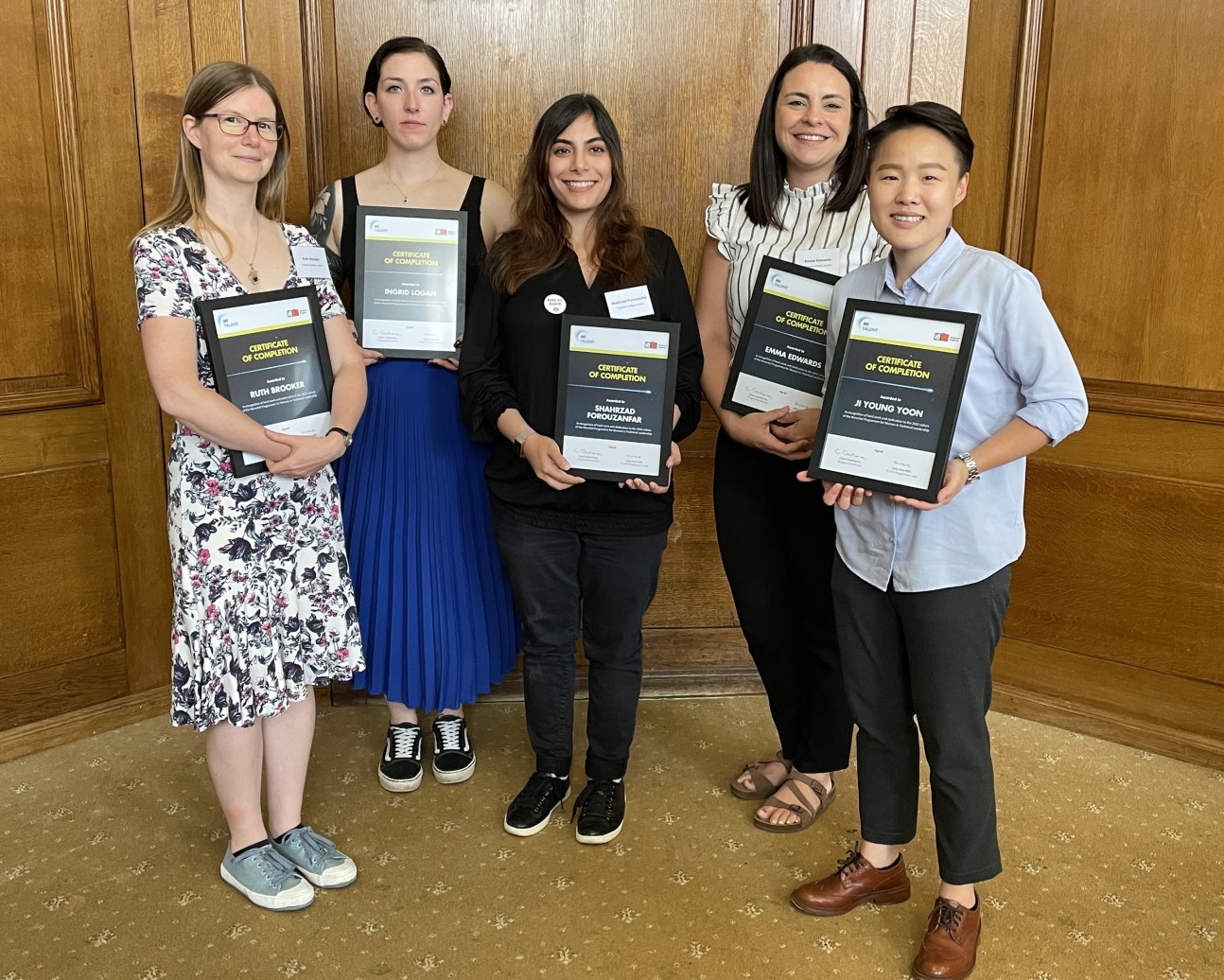Rainforest design futures and carbon dating: News from the College

Here’s a batch of fresh news and announcements from across Imperial.
From a design futures project on sustainability in the Amazon Rainforest, to research into using carbon to assess how old organic materials are, here is some quick-read news from across the College.
Rainforest design futures

Five Dyson School of Design Engineering students have won the Design Engineering Selected Innovation REcognition (DESIRE) award for their design futures project that aligns sustainability of the Amazon Rainforest with the needs of its inhabitants.
Design Engineering MEng students Sibylle Rérolle, Camilla Billari, Hannah Knight, Naini Mandal, and James Skinner worked with the Amazon Protection Foundation and EBCF Brasil to serve the mission to fight climate change, poverty and deforestation in the Amazon. They are now taking their experience to Sri Lanka, delivering a Global Innovation Masterclass in September and working with the Sri Lankan private and non-government sectors.
Supervisor Professor Thrishantha Nanayakkara, Director of the Morph Lab at the Dyson School of Design Engineering, said: “I am very proud of these students’ ambition to make a difference in global challenges by using their skills in design engineering, their goals of tackling climate change, and their openness for fun and friendships. Life is a celebration when you learn and live like that.”
Permeable pavements award
 Dr Alalea Kia has won the £5000 Hawley Award for Engineering Innovation that helps to achieve Net Zero Carbon, for her next generation permeable pavement technology.
Dr Alalea Kia has won the £5000 Hawley Award for Engineering Innovation that helps to achieve Net Zero Carbon, for her next generation permeable pavement technology.
Current permeable pavements offer a solution to urban flooding, however they have low strength and durability and suffer from clogging. Dr Kia’s solution, Kiacrete, is a permeable pavement that is engineered to solve these challenges, whilst offering flood mitigation and major environmental benefits. Kiacrete contributes towards achieving net zero through reduced emissions (material savings, long service-life, recycled material), water reuse, and decreased urban heat island effect.
Dr Kia, of the Department of Civil and Environmental Engineering, received the Award on 14 July 2022. She said: “I am honoured to receive the prestigious Hawley Award for engineering innovation. This award will be used to supervise new field sites in India, verifying Kiacrete’s performance under extreme monsoon and drought conditions, enabling the wider adoption of permeable infrastructure internationally.”
Female technical leaders
 Five technicians from Imperial have successfully completed a national programme to develop new female technical leaders in higher education.
Five technicians from Imperial have successfully completed a national programme to develop new female technical leaders in higher education.
The Herschel Programme for Women in Technical Leadership, which is named after pioneering scientist Caroline Herschel, is designed to set out ways to elevate and advance career opportunities for current and aspiring leaders who identify as women.
More than 50 higher education and research institutions from the UK have been represented in the programme this year, which was delivered by the University of Nottingham and the Research England-funded Midlands Innovation TALENT programme.
Imperial’s participants in the programme were Ji Young Yoon (Department of Bioengineering), Emma Edwards (Faculty of Natural Sciences), Ruth Brooker (Department of Mechanical Engineering), Shahrzad Forouzanfar (Department of Bioengineering) and Ingrid Logan (Dyson School of Design Engineering).
Read more about the programme on the Midlands Innovation TALENT website.
Dating back in time
 Carbon dating allows researchers to tell how old organic materials are, such as bones and pieces of wood. The method relies on measuring the ratio of a special form (isotope) of carbon called carbon-14 (14C/C) in the sample. The ratio of atmospheric 14C/C rose in the 1950s and 60s due to atomic bomb tests but it is currently declining because fossil fuel burning adds carbon to the atmosphere, although not in the form of 14C.
Carbon dating allows researchers to tell how old organic materials are, such as bones and pieces of wood. The method relies on measuring the ratio of a special form (isotope) of carbon called carbon-14 (14C/C) in the sample. The ratio of atmospheric 14C/C rose in the 1950s and 60s due to atomic bomb tests but it is currently declining because fossil fuel burning adds carbon to the atmosphere, although not in the form of 14C.
In 2015, Imperial researcher Dr Heather Graven, from the Department of Physics, predicted that 14C/C levels would soon reach below pre-industrial levels, meaning newer materials could be incorrectly dated as being older than they are. This week in Nature, she now reports that this is the case. This has implications for archaeology and forensics, which rely on carbon dating.
If fossil-fuel burning is phased out to limit global warming, then the decline in 14C/C will stop. But with emissions still rising, atmospheric 14C/C could drop to levels that mimic those in the Middle Ages by 2050.
Main image credit: Shutterstock.

Want to be kept up to date on news at Imperial? Sign up for our free quick-read daily e-newsletter, Imperial Today.
Article text (excluding photos or graphics) © Imperial College London.
Photos and graphics subject to third party copyright used with permission or © Imperial College London.
Reporter
Conrad Duncan
Communications Division
Caroline Brogan
Communications Division
Hayley Dunning
Communications Division